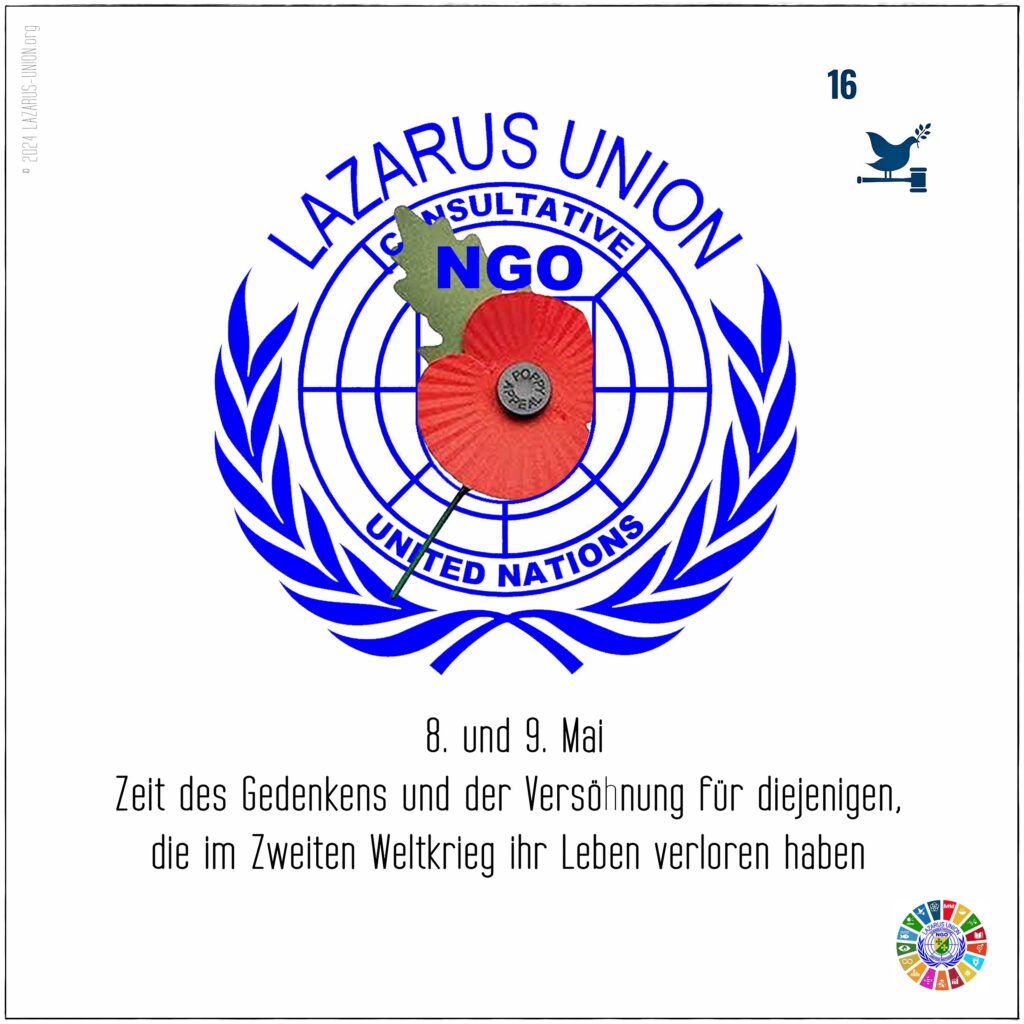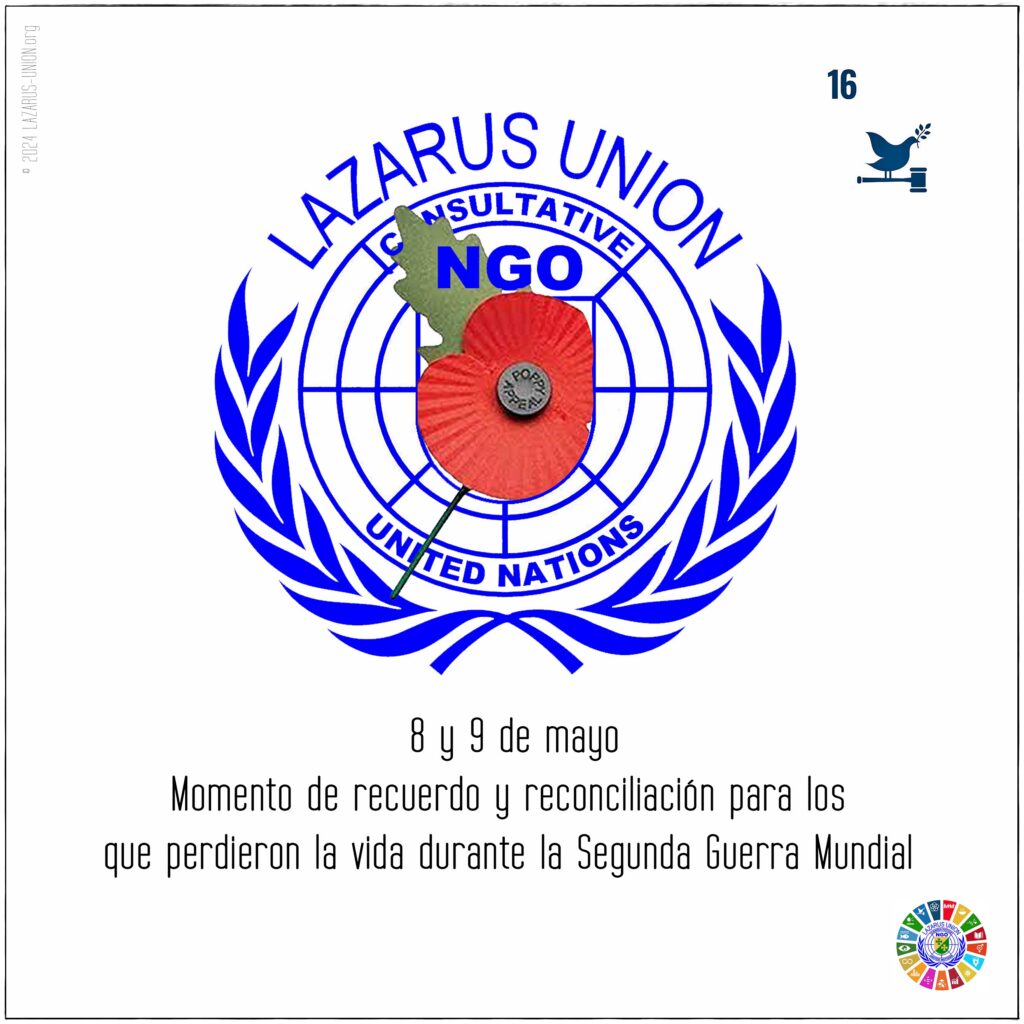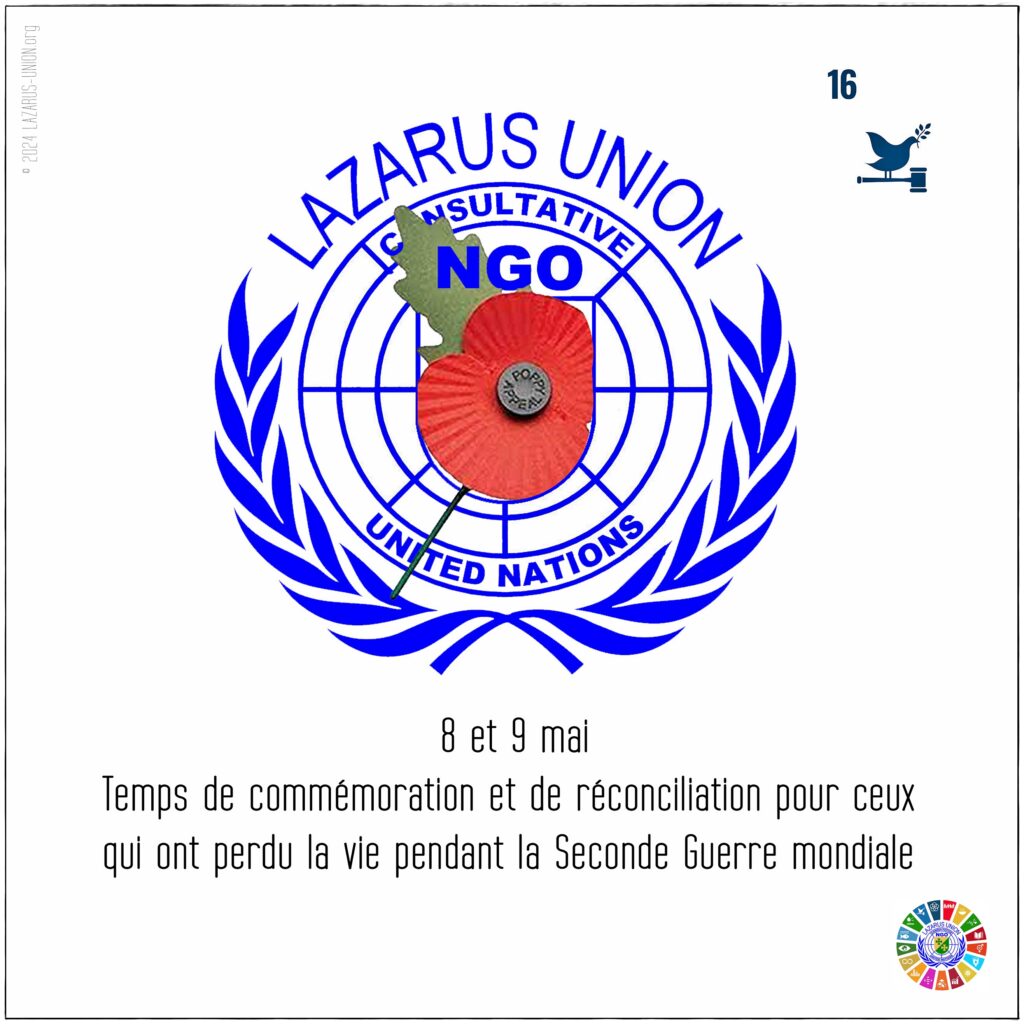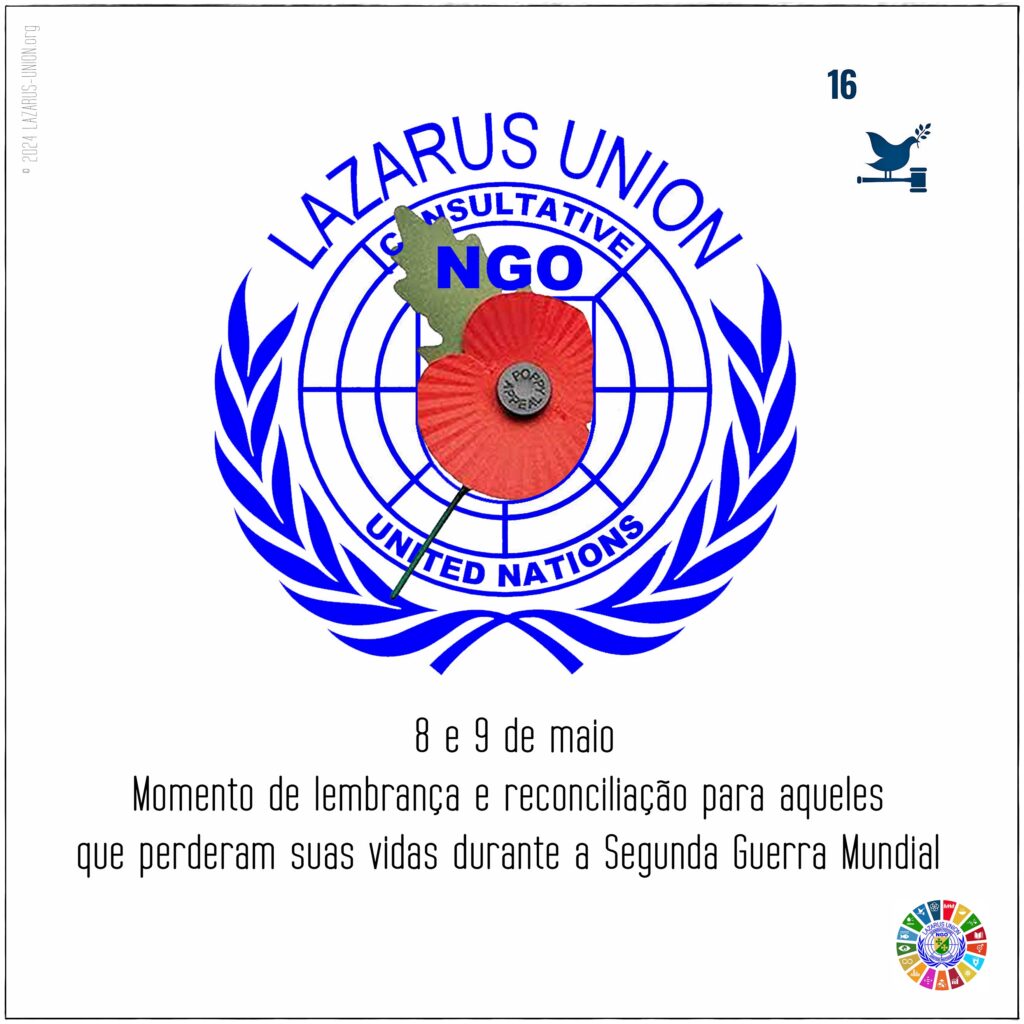Statement of the Lazarus Union on the Occasion of Commonwealth Day Dear Members and Friends, On this special occasion of Commonwealth Day, the Lazarus Union extends its warmest greetings to... Read more

Time of Remembrance and Reconciliation for Those Who Lost Their Lives During the Second World War
The Time of Remembrance and Reconciliation for Those Who Lost Their Lives During the Second World War, observed on 8 and 9 of May, stands as a poignant reminder of the profound impact of this global conflict on humanity. This period serves as a solemn opportunity to honour the millions who perished, reflect on the horrors endured, and reaffirm our commitment to peace and reconciliation.
The significance of this commemoration extends for the Lazarus Union far beyond historical remembrance; it resonates deeply in contemporary society. The Second World War not only reshaped geopolitical landscapes but also left an indelible mark on cultural, social, and economic spheres worldwide. Its consequences continue to reverberate through generations, shaping our collective consciousness and influencing global dynamics.
One of the enduring legacies of the Second World War is the imperative to safeguard human rights and prevent the recurrence of such atrocities. The war’s atrocities, including genocide, mass displacement, and widespread destruction, underscore the catastrophic consequences of intolerance, hatred, and aggression. Through remembrance and reconciliation, we acknowledge the victims’ suffering and strive to create a world where such horrors are never repeated.





Moreover, the Second World War laid the groundwork for the establishment of international institutions and norms aimed at fostering peace and cooperation. The United Nations, born out of the ashes of conflict, embodies the collective resolve to promote dialogue, diplomacy, and conflict resolution as alternatives to war. The principles enshrined in its charter, including respect for human rights, justice, and equality, serve as guiding beacons in our quest for a more peaceful and just world.
However, despite the passage of time, the scars of war endure, serving as poignant reminders of the fragility of peace. Lingering conflicts, unresolved grievances, and persistent tensions underscore the ongoing relevance of remembrance and reconciliation efforts. By confronting the past with honesty and empathy, we can pave the way for healing, understanding, and forgiveness, fostering a culture of peace and reconciliation that transcends borders and ideologies.
In essence, the Time of Remembrance and Reconciliation for Those Who Lost Their Lives During the Second World War serves as a solemn testament to the enduring legacy of this conflict and the imperative to strive for a world free from the scourge of war. As the Lazarus Union honours the memory of the fallen, let us rededicate ourselves to the pursuit of peace, justice, and reconciliation, ensuring that their sacrifices are never forgotten.








